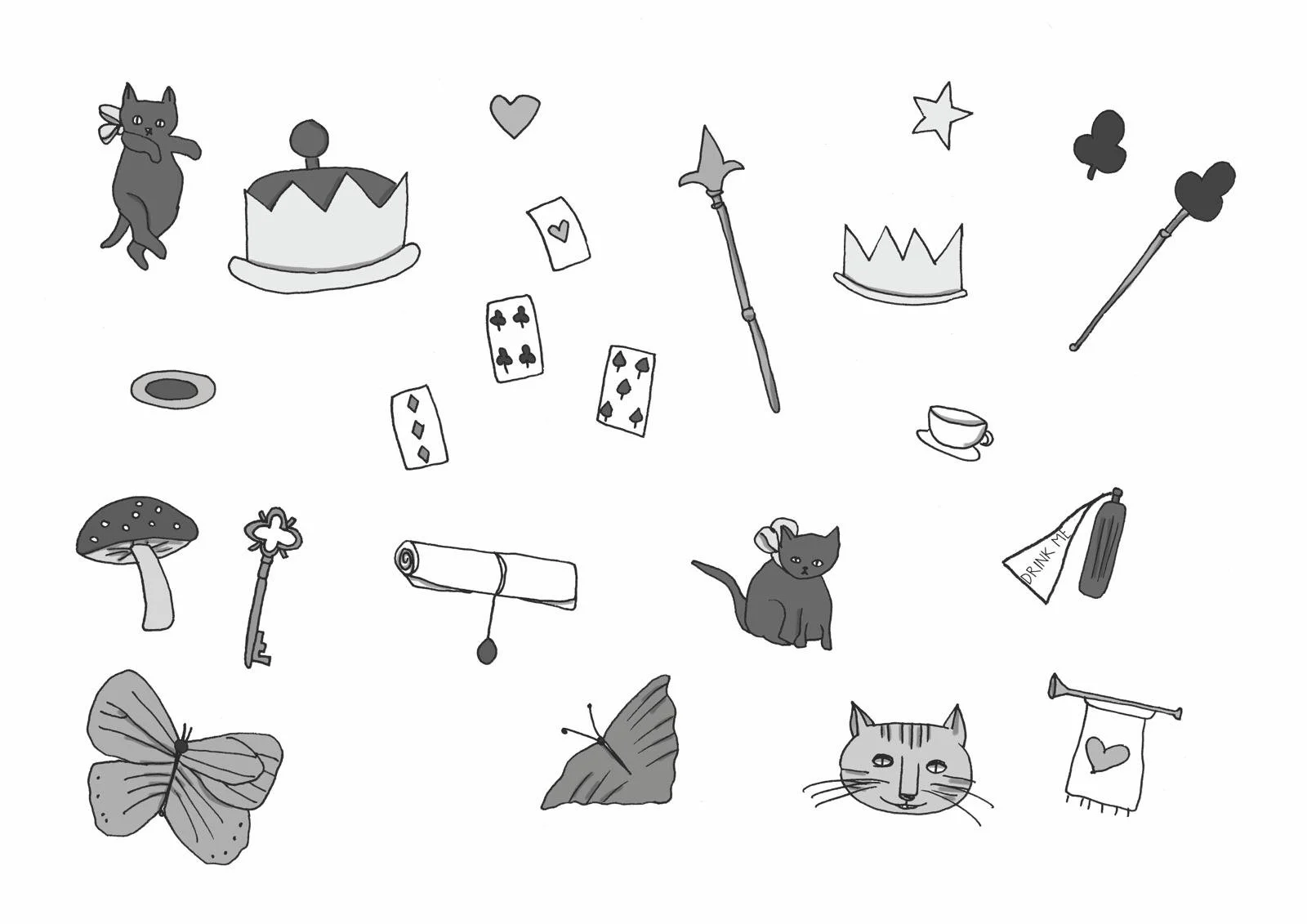
“Begin at the beginning… and go on till you come to the end: then stop.”
- Lewis Carroll, Alice’s Adventures in Wonderland (1865)
Narrative Theory: Storytelling as Epistemic and Structural Resistance
“Autistic community is sustained by our stories; they are our cultural archive and our strategy for survival.” — Steven Kapp, Autistic Community and the Neurodiversity Movement (2020)
Reclaiming Voice, Reframing Systems
At Alice’s Wonderland, storytelling isn’t an accessory to our work—it’s a method, a philosophy, and a form of resistance. Narrative Theory explores how storytelling functions as a structural and epistemic force, especially for neurodivergent communities historically excluded from dominant narratives.
Neurodivergent storytelling resists the norms of coherence, linearity, and diagnostic containment. It brings forward poetic, looping, sensory, or non-verbal forms of expression—what some have called “narrative dissonance”—and reframes these not as deficits but as epistemologies of their own.
✦ At Alice’s Wonderland, we extend Orme’s (2010) concept of narrative disobedience, which names the deliberate refusal of imposed narrative norms, and the narrative ecosystem, the cultural web of stories that sustains neurodivergent community and justice.
And what is the use of a book,” thought Alice, “without pictures or conversations.”
— Lewis Carroll, Alice’s Adventures in Wonderland (1865)
☆ Why Narrative Theory Matters at Alice’s Wonderland
“To author oneself, to claim narrative authority, is to contest who has the right to shape our realities.” - Yergeau, 2018, p. 6
✩ Story as Epistemic Justice
Following Melanie Yergeau (2018), we view narrative as a way to contest who has the right to define and represent neurodivergent experience. We tell stories not just to share what happened, but to claim the power to interpret our own lives.
✩ Narrative as Resistance
Our storytelling does not conform to institutional logics. Instead, we resist the impulse to translate our lives into linear or clinically palatable formats. We reclaim what has been pathologised, reframing “nonsense” as sense-making in disguise.
✩ Story as NeuroKinship and Cultural Formation
Drawing on Steven Kapp (2020), we see storytelling as a foundation of autistic community and identity. Our stories are how we find each other—building resonance, solidarity, and a sense of neurokinship.
✩ Story as Structural Critique
As thinkers like Eli Clare, Leah Lakshmi Piepzna-Samarasinha, and G. Thomas Couser have argued, narrative can serve as a site of resistance against cure narratives, institutional power, and normative timelines.This links to structural empathy failure: when systems fail to listen, story becomes both evidence and protest.
☆ Theoretical Grounding
Our approach is influenced by:
✩ Melanie Yergeau (2018) — Authoring Autism
Narrative as rhetorical and ontological self-definition.
✩ Steven Kapp (2020) — Autistic Community and the Neurodiversity Movement
Storytelling as cultural archive and political strategy.
✩ Leah Lakshmi Piepzna-Samarasinha (2018) — Care Work
Story as survival, wisdom, and disability justice.
✩ Eli Clare (2017) — Brilliant Imperfection
Memoir as a way to unmake cure logics and reframe disabled identity.
✩ Rebecca Wanzo (2020) — The Content of Our Caricature
Even constrained narratives can hold subversive power.
✩ G. Thomas Couser (2011) — Memoir and Disability
Foregrounding the ethics of self-authorship and narrative control.
✩ Monique Botha & Elizabeth Gillespie-Lynch (2022)— Come as You Are
Botha’s work reminds us that narrative justice cannot be separated from intersectionality and power. Explores autistic identity development through an intersectional lens, showing how stigma, power, and multiple marginalisations shape autistic life and research.
☆ Narrative Disobedience at Wonderland
“Narrative disobedience is the refusal of imposed narrative norms.” — Jennifer Orme (2011)
✩ We welcome fragmented, looping, sensory, and poetic forms.
✩ We honour silence, scripting, and stimming as narrative expressions.
✩ We challenge the idea that stories must be linear or logical to be valuable.
✩ We treat storytelling as a conceptual and cultural contribution—not just personal testimony.
✦ At Wonderland, we don’t just tell stories—we use them to think, to build community, and to dismantle the systems that tried to define us without us.
➽ This entry is part of the Key Concepts series at Alice’s Wonderland, exploring the frameworks that shape how we think, connect, and create. If you’d like to contribute to this series, we’d love to hear from you.

